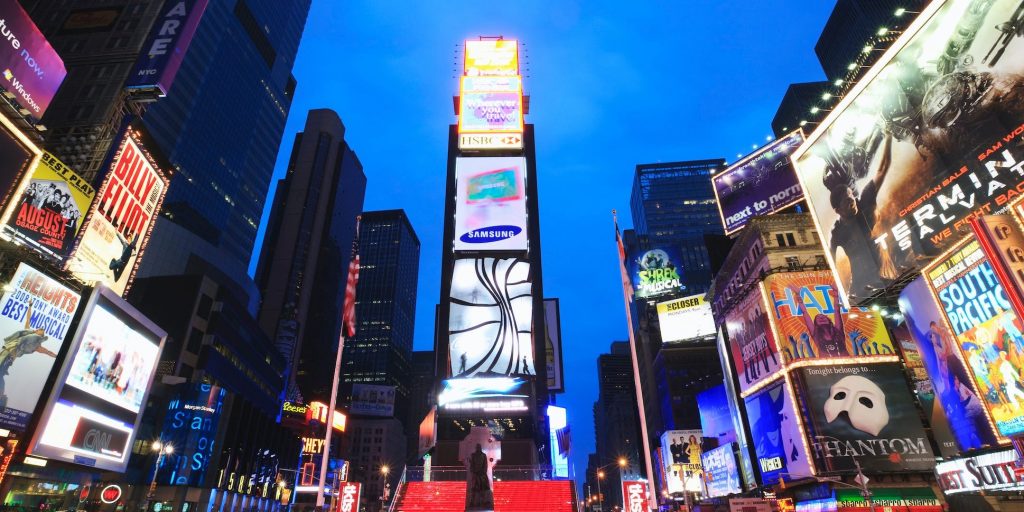- In an exclusive interview with Insider, the founder of NFT.NYC broke down his vision for the event and digital assets.
- After launching in 2019, it now features more than 1,500 speakers across venues in Times Square in New York City.
- "This could be the South by Southwest of NYC," Jodee Rich said.
The world's largest NFT event, NFT.NYC, kicks off for the fourth straight year on Tuesday, and founder Jodee Rich remains upbeat even as the digital asset market has tumbled recently.
NFTs had a breakthrough year in 2021, but weekly sales have declined by more than 80% from a January peak of nearly $1 billion, according to data from NonFungible.com. Still, NFT.NYC has tripled in size over the last year, Rich said.
Across seven official venues in Times Square and countless more so-called satellite venues scattered around New York City, over 1,500 speakers and 15,000 attendees will converge over four days to cover all things non-fungible tokens. Virtual artwork made by NFT artists will even be featured during the week on the massive billboards in Times Square.
Attendees previously have referred to it as "Crypto Coachella," though Rich, who is also the CEO of the NFT marketplace NFT.Kred, says this will be much more than just a week of partying, and that it's focused only on non-fungible tokens.
"We started NFT.NYC because we wanted to give the community a voice," Rich told Insider. "We want to put as many people on stage as possible, bringing thought leaders together and, wherever we can, incorporate NFT technology into the events."
Instead of Coachella, he likens his event to a more eclectic one: "This could be the South by Southwest of NYC."
The theme of this year's gathering, "Diversity of NFTs," is reflected in the programming. The wide-ranging lineup of panels will cover how NFTs relate to sustainability, Hollywood, Olympic sports, hospitality, and metaverse apparel.
NFTs are not solely about digital images that people use as profile pictures on social media, Rich noted. That's actually one of their least useful utilities, he said, and a misconception.
"An NFT artist would disagree that it's just about JPEGs," Rich said. "NFTs are liberating because they can disrupt the chain between the artist and the buyer of art, but it also allows for such a dynamic space, intelligence, metadata — across many different platforms."
Looking ahead for the blockchain
Even amid the current crypto bear market, as well as the downturn in NFT sales across marketplaces such as OpenSea, Rich said he ultimately remains optimistic.
The success or decline of cryptocurrencies, for starters, isn't necessary to the success of NFTs, and the blockchain technology underpinning NFTs is what shows the most promise to Rich.
He explained that tradeable NFTs, like those on OpenSea, represent less than one-third of the total NFT market, and are entirely separate from the rest of the technology at hand.
"There's so much other opportunity in ticketing, branding, fashion," Rich maintained. "[Tradeable NFTs] are a very, very small part of our overall event and ecosystem."
As the fourth year of the event begins, Rich said he's seeing more and more brands turn to the technology of NFTs.
Major corporations, he explained, are now hiring teams of people to develop blockchain technology and focus on the space as it becomes more mainstream. Rich pointed out that entertainment giant LiveNation has mentioned NFTs in two recent company earnings calls.
"NFTs are really going to disrupt most industries," he said. "Identity, ticketing, brands, music, fashion, real estate, and more — we are still very early stage, and this is the beginning of a long-term trend."
